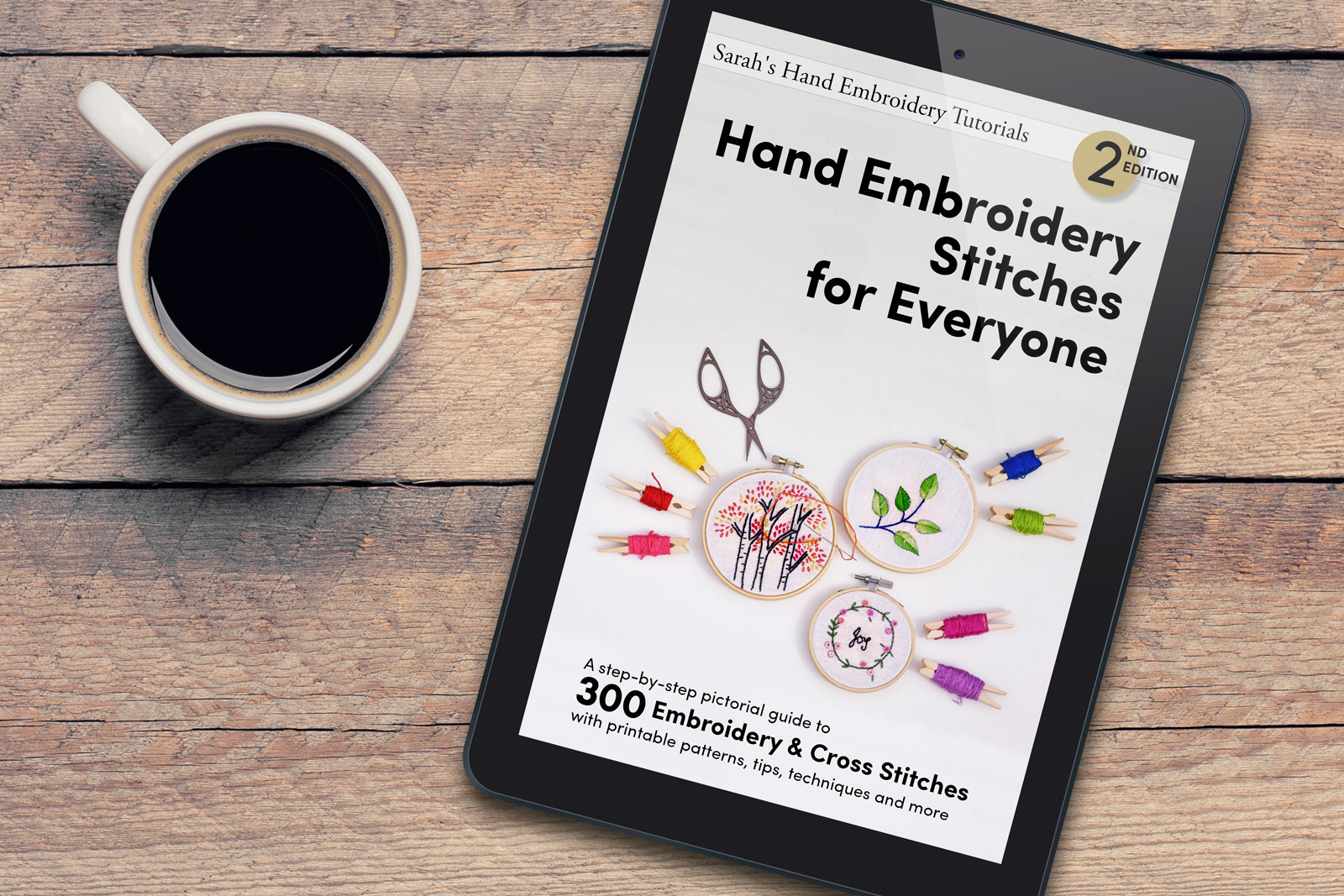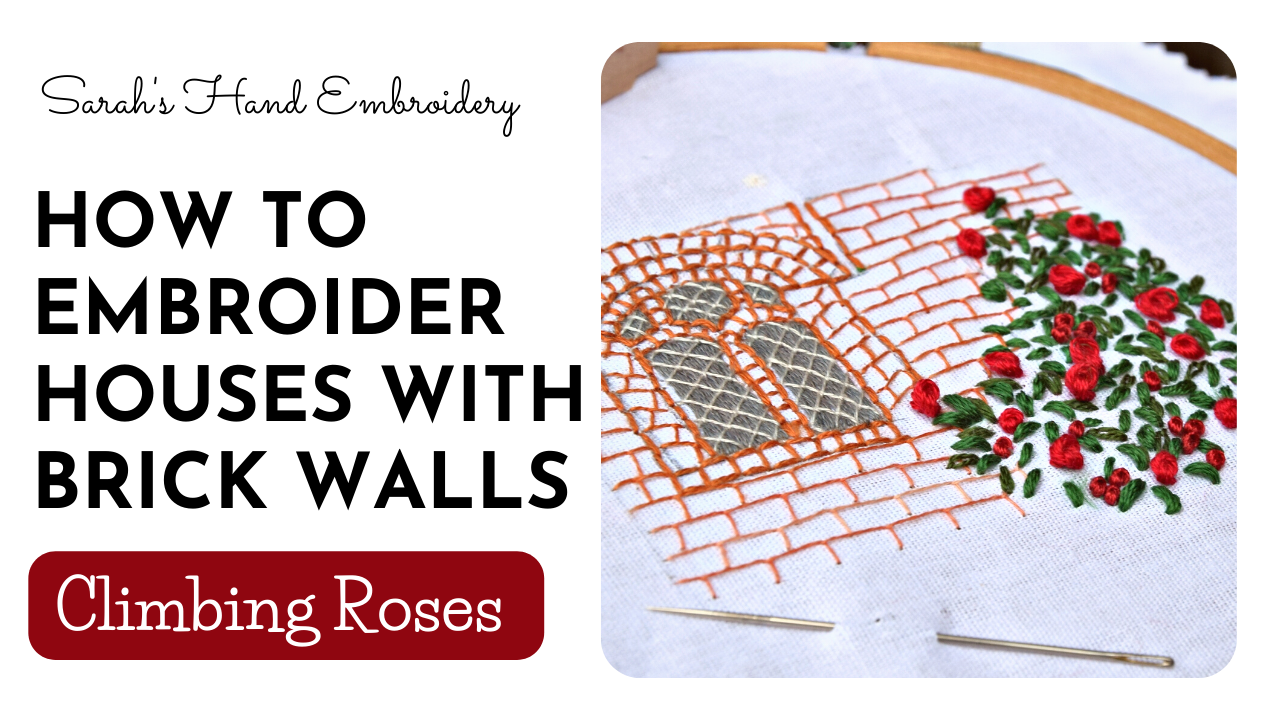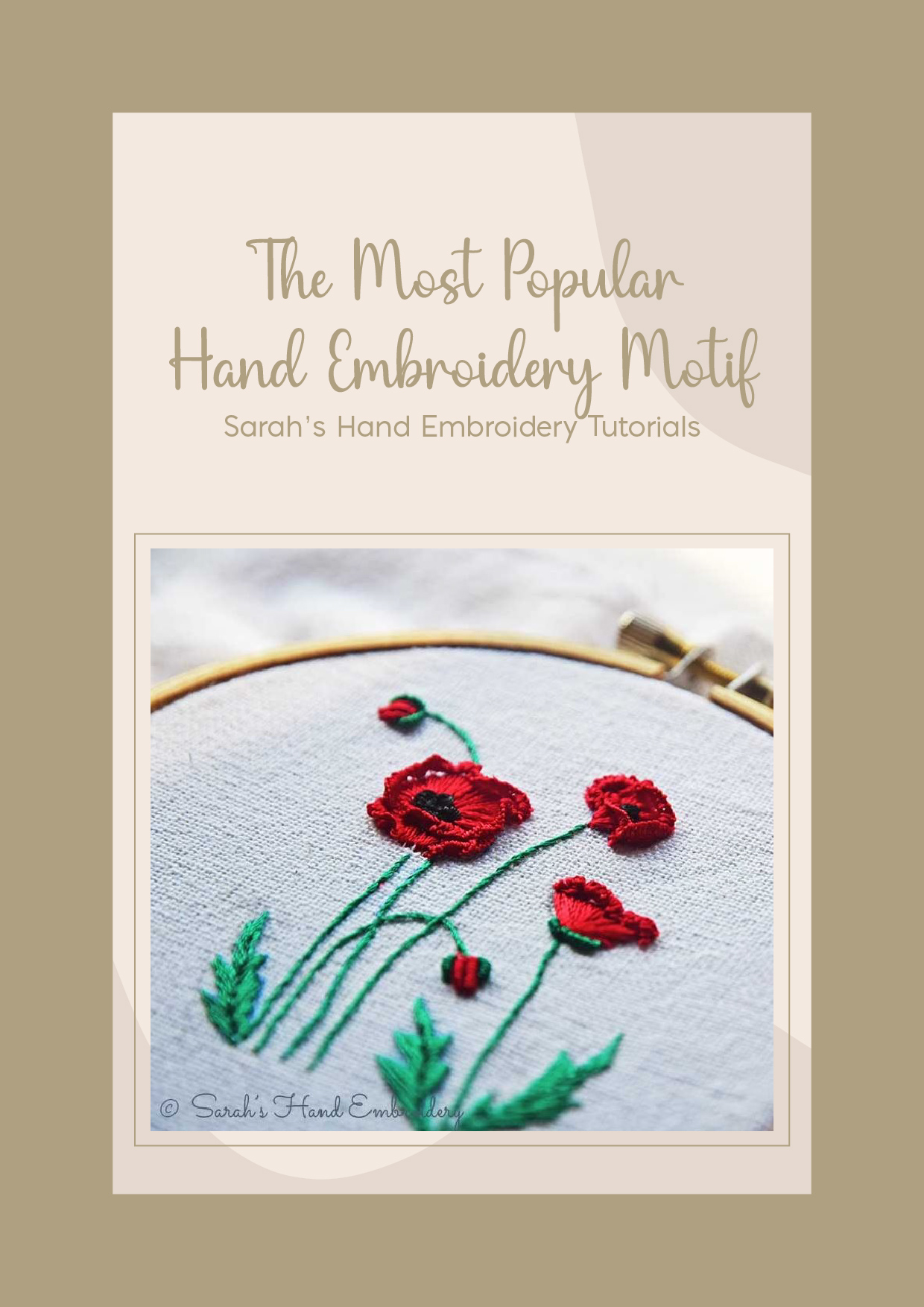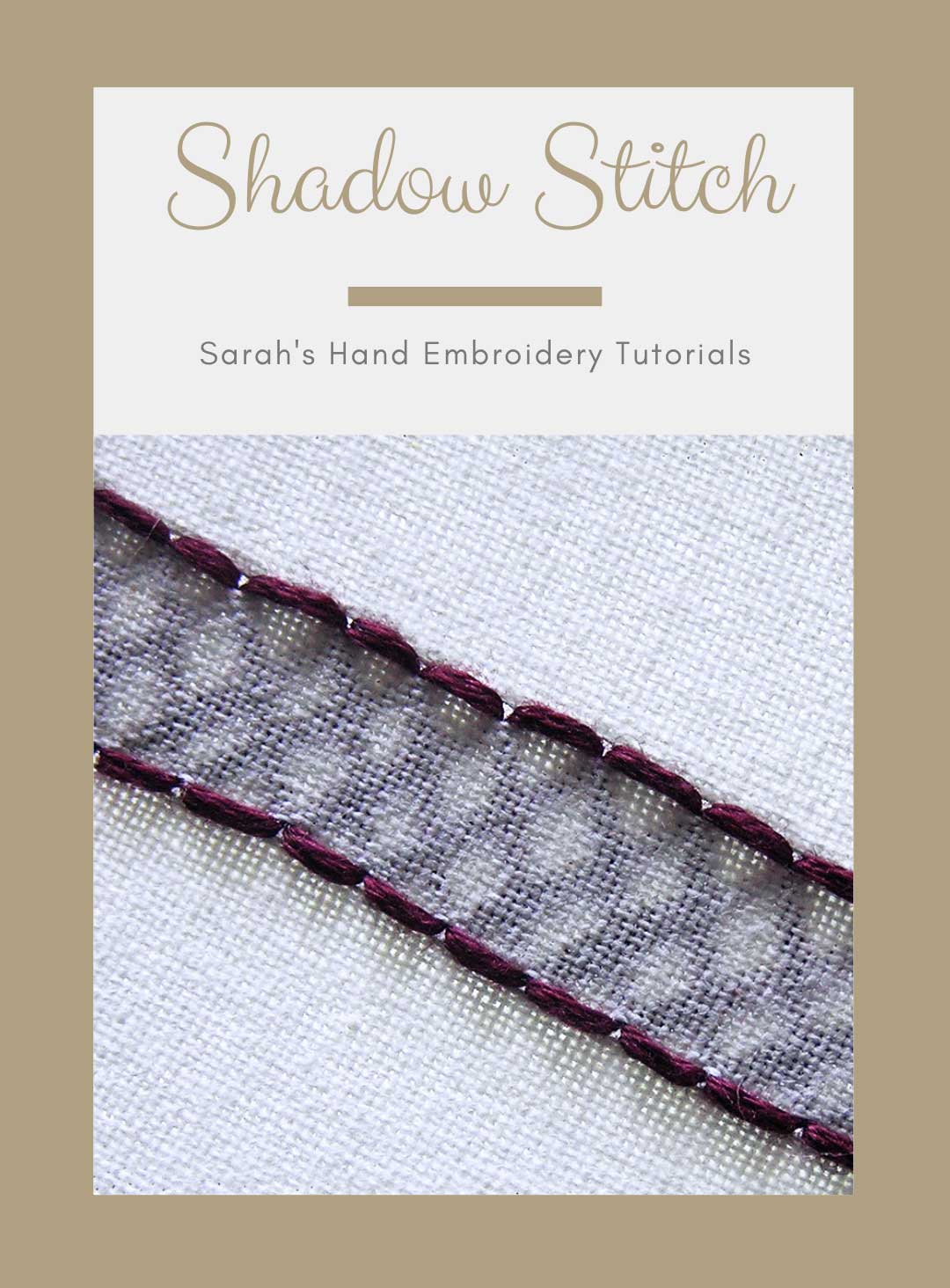
This stitch is just a variety of the running stitch, which I have named. It incorporates the technique of Chinese stitch or Pekinese stitch. This is a very decorative stitch and can be experimented with threads of various colors over borders. Close layers of this stitch can create wonderful effects on a pattern.
You need to know the running stitch before doing this stitch. The knowledge of the Pekinese stitch will be very helpful.
 |  |
| Fig 1: Lay the foundation by doing a running stitch. Take a contrasting colored thread and bring it out from near the first running stitch. | Fig 2: Start following the pekinese stitch technique. Take the needle in through the second stitch and come out through the first, making a loop. |
 | |
| Fig 3: Continue this action of ‘looping’ using the running stitch foundation, as illustrated. | |
 | |
| Fig 4: Finish up the pattern for it to look like this. | |
 Sarah has been researching and sharing hand embroidery lessons for over 17 years, making it accessible to everyone around the globe.
Sarah has been researching and sharing hand embroidery lessons for over 17 years, making it accessible to everyone around the globe.





This is the best website I’ve found so far on embroidery stitches! However, I’ve noticed that on several pages like this one, there are no photos (the images are broken, so they don’t show up)?
Hi Quinn,
Thank you ☺.
Sometimes, it’s just the server… So, please refresh the page and the photos should show up. We are working on solving the issue.
🩷 Sarah
thanks for sharing it is very helpful for me. i’m a Newbie in embroidery 🙂
This is about the most informative site I have found. I have done some embroidery, but not very proficient at it. My niece asked me to make her a Tshirt quilt, so after I appliqued the shirt pieces, I thought maybe using some crazy quilt stitches would make it more interesting, but I only knew 2 or 3 stitches. I had bookmarked your site several months ago, and I’m really glad I did. It is still a work in progress, but with your site, I’m sure I can find just the stitches I need.
 chevron stitch
chevron stitch
 running loop stitch and blanket stitch
running loop stitch and blanket stitch
Thank you Debbie for sharing pictures of your stitches. 🙂
thanks for the tutorial its very helpful 🙂
I am beginner in embroiding. But I have much more interest on it.Your site helps me very usefully. Thank you
can i use it as an outline in a letter? for example letter ‘G’
Dear Gervie,
Sorry for a late response. Yes this stitch can be used for making letters. Just make sure to keep the running stitches closer- it will help in taking the curves of the letters better.
hello madam ,,,,,,,,,,,
ur blog looks very helpful
can u send me the details of which type of thread to be used
Thank you Sarah for sharing all of this tutorials, its amazing that you have spent alot of time and patience explaning step by step and very nicely done, thanks for all your time. I just started giving basic sewing clases this is definate a site that i will give my students
i need a book about these embroidery stitches…..can u help me?
awesome site….i love it….
Adorei os pontos simples e lindos dos bordados. Isso é uma coisa que amo! Obrigada por ensinar o passo-a-passo.
Blog is really interesting. I love embroidery but never put effort and there can’t be any other guru than your site , thanks 🙂
Hi Sarah Great work and illustrations.. have no words to express my thanks.. THANKS A LOT!!
Clear illustrations and good explanations…. Thank you very much for nice teaching technics….
I love your site! This is the best site for clear directions on so many embroidery stitches!! I used it and linked to you in this post: http://missloviecreations.blogspot.com/2011/11/pre-planned-date-night-basket-tutorial.html
Thanks so much for sharing! I can’t wait to do more!
🙂 Thanks Allie.
Your blog is really nice…gives some great craft ideas, and loved them.
It’s the most amazing embroidery tutorial that i find! Congratulations!
🙂 Thanks Laura. Happy that you liked our pages.
Dear Sarah
can you please give me the demo for kachchhi stich.
Thank you
Chhaya
Dear Chhaya,
My kutch embroidery tutorial is only under construction and might take some time before I could post it. I am trying to make the tutorial as simple and interesting as possible. Since I will be travelling in teh coming days, there will be a delay too.